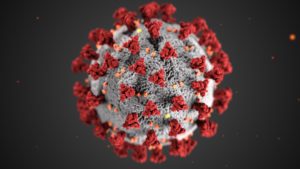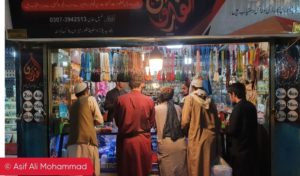
The domestic workers from the Christian community found themselves trapped in the myriad challenges arising out of joblessness and poverty amplified by the Corona outbreak. Even worse, they were refused relief packages due to their religious belief.
The global pandemic, Covid-19, affected all segments of the society however, people from the lower-income groups met the cruelest of consequences. After the lockdown was imposed, many daily wage labourers and workers lost their jobs in the blink of an eye. Keeping their vulnerability in view, many groups and civil society organizations came to help by launching food drives and distributing health and hygiene kits.
However these initiatives totally overlooked the religious minorities like Christians living in urban slums of Islamabad. Majority of the christian women who used to work as domestic help lost their means of livelihood when families began to practice caution by limiting their social exposure. It was observed that the house help of this kind were mostly the sole bread-earners for their families and the monthly income ranges from PRK 4000 to PKR 6000 per month.
Islamabad is the administrative capital of the country. There are around 34 slums in Islamabad and 35% of the total population of the city lives in these informal settlements. Due to their illegal status, they lack basic civic housing facilities. Most of the slums are located at the banks of streams where untreated and sewage water is drained. These slums are seemingly crowded clusters of partially constructed houses having unsafe drinking water, lack of a proper drainage system and a dilapidated condition of streets.The Capital Development Authority (CDA) spends billions of rupees on constructing buildings, roads, parks and monuments as well as in beautifying the city, but has failed to construct basic low-cost infrastructure for these basti dwellers.
Ironically, a majority of the janitors; responsible for the cleanliness of the city and waste disposal, are Christians, and the living conditions they are compelled to live in are unsafe. Though CDA had announced a plan for up-gradation of the slums but to date, only one slum area has seen the dawn of development.

Of the total 34 slums, Christians are settled in around ten of them, having approximately 500 households in each. The average family size is around 7 members. Majority of the community members are migrants and illiterate which causes them to do low-wage jobs for sustaining themselves socially.
The Christian women are specifically the most disadvantaged of the lot.Throughout their lives, they live under abject poverty and often find way to professions like babysitters, maids, house cleaners, beauticians, sales girls and daily wage earners where they face multiple issues like inequality, job insecurity, sexual or physical violence or psychological abuse in workplaces. They are exposed to an exploitation in terms of denied labor rights, theft accusations and in worst case scenarios of serious crimes such as murder.
It’s unfortunate that by virtue of social class and gender these women have to suffer on multiple fronts. Cases of employer harassment have also surfaced, and their voices stifled so as to avoid defamation.
“Before the outbreak of Covid-19 in Pakistan, I was providing services in four households simultaneously but due to the spread of the virus, I was asked by my employers to not visit their homes for work.”Farzana Adeel – A 37-year-old mother of twoSHARE10TWEET
One such woman is Farzana Adeel, 37-year-old and a mother of two. Farzana is a single parent who lives in 66 Quarters, G-7/2 sector of Islamabad. She parted ways with her husband, who was a drug addict, and started working as a domestic worker. It has been eight years since she has been providing services begums as a maidservant. “Before the outbreak of Covid-19 in Pakistan, I was providing services in four households simultaneously” told Farzana, “but due to the spread of the virus, I was asked by my employers to not visit their homes for work”. And she became jobless due to the lockdown.
Adding to her woes is the fact that she could not have been considered for a financial support package from the Government’s Ehsas Program. Her family’s survival was threatened and all routes to salvation closed. One of her employers distributed food packages among the vulnerable groups but Farzana was refused support because of her religious beliefs. She somehow managed to meet her basic needs with a local church’s assistance though, and sighed a breath of relief.

Same is the case with another domestic worker, Sabeeha (a resident of Hansa colony in sector G-8/1), who had also lost her job due to the pandemic. Luckily she kept getting paid by one of her employers during the observation of quarantine but she was denied the delivery of ration bags in view of her faith just as well. Her husband, who was a cab driver, lost his job during the COVID-19 times which adversely affected their monthly income. They borrowed money from relatives to make ends meet.
It has been observed that largely the non-muslims are denied relief packages by the majority community due to their shared belief that charities in Islam are accepted when given to Muslims. Whereas no religion forbids to help other humans in need, as a matter of fact, it teaches respect and prioritizes human life above everything else. Islam is no exception. The acceptance towards other groups regardless of their faith, caste or religion is a basic value and is instrumental in keeping the drivers of humanity intact.



